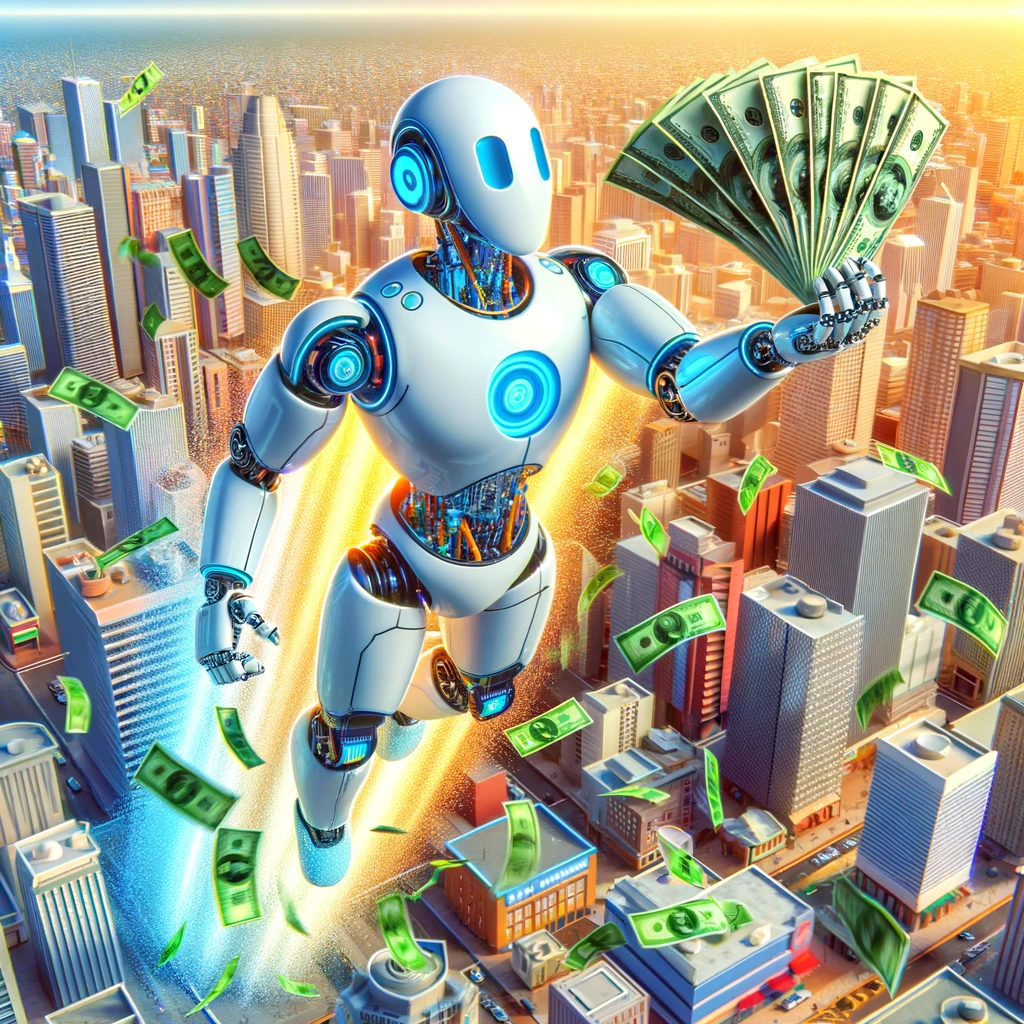How to Best Prepare for the AI Jobs Apocalypse

Whether inspired by science fiction or true technological progress, people have long feared that human workers will one day be replaced by robots or artificial intelligence (AI).
To some, that future may be generations away. But ever since ChatGPT’s debut in late 2022, AI has progressed at unfathomable speeds. And over the past few quarters, we’ve seen that rapid success translate into stellar earnings for the firms implementing new AI technologies.
We’ve also seen increased news headlines about AI and robots taking our jobs.
Indeed, Goldman Sachs estimates that AI could replace 300 million full-time jobs. McKinsey Global projects that around 15% of workers globally will have to change careers due to artificial intelligence. OpenAI’s research suggests that about 20% of workers may be at risk to AI-powered automation. Citi sees the technology impacting more than half of all jobs in finance. And according to a recent Conference Board survey, about 50% of CEOs think they’ll eventually replace human labor with AI.
Those are scary figures, to be sure. But to most, they are just hypotheticals – nothing more.
It seems that the consensus belief among everyday Americans is that the whole AI Revolution is way overblown; and even if it triggers a job apocalypse, it won’t happen for another 10 or 20 years.
But this labor catastrophe may be much closer than you think.
AI Is Already Displacing Workers
My team is seeing evidence that suggests the ‘Jobs Apocalypse’ has already arrived. A ton of Americans are already losing their jobs to AI. And this trend will likely only continue.
For example, earlier this year, Best Buy (BBY) announced widespread layoffs, including cuts to the company’s Geek Squad team and customer help specialists. At the same time, the retailer announced a new venture with Google Cloud to use generative AI (genAI) for tech support.
It seems clear that Best Buy is trying to replace its human-powered tech support experience with an AI-powered one.
And it isn’t alone.
Language learning company Duolingo (DUOL) used to rely on an army of contractors to help support its mobile application. Typically, those contractors were used to create sentences for courses, produce lists of acceptable translations, and review user error reports to correct mistakes. But earlier this year, Duolingo announced it was laying off 10% of its contractors, instead relying on artificial intelligence to do all that stuff.
Video game developer Activision Blizzard (ATVI) appears to be making a similar shift. It’s undergone significant layoffs, too. And according to WIRED, it’s now using genAI technology for game development.
Computer maker Dell (DELL), networking giant Cisco (CSCO), tax-help titan Intuit (INTU)… All just announced big layoffs as the businesses pivot to developing AI.
Folks, we believe the AI Jobs Apocalypse has arrived.
Across regions and industries, companies are already firing people and replacing them with AI. And this trend is expected to continue.
In fact, Duke University and the Federal Reserve Banks of Atlanta and Richmond recently conducted a survey of CFOs. They found that 61% of U.S. firms plan to use AI within the next year to automate tasks previously done by employees.
Why? To increase product quality (cited by 58% of surveyed firms), increase output (49%), reduce labor costs (47%), and replace workers (33%).
In other words, companies are turning to artificial intelligence to boost profits – and it’s working.
The Final Word
This quarter, on average, companies across the S&P 500 reported nearly 10% earnings growth.
That is one of the best earnings growth rates the S&P 500 has reported since the COVID-19 pandemic emerged in 2020.
At the same time, unemployment rates are rising sharply. Indeed, earlier this year, the national unemployment rate stood at 3.7%. Since then, it has spiked to 4.3%. Most folks expect it to keep rising.
In other words, right now… unemployment is rising… while corporate profits are also soaring.
That’s unusual. And it tells us that companies are using AI to replace human labor and productivity – and boost profits.
Does that mean AI is coming for your job? Are you at risk within the next year or two?
Maybe. And that means that you have to prepare for the AI Jobs Apocalypse now, before it blindsides you.
We’re confident that one of the best ways to hedge that risk is by buying AI stocks – because the more AI takes over the labor market, the more those stocks will soar.
Check out a few of our favorite picks to buy right now.
On the date of publication, Luke Lango did not have (either directly or indirectly) any positions in the securities mentioned in this article.
P.S. You can stay up to speed with Luke’s latest market analysis by reading our Daily Notes! Check out the latest issue on your Innovation Investor or Early Stage Investor subscriber site.
Related
A top recruiter says sports marketing roles are hot right…
Jobs are opening up in the sports industry as teams expand and money flows into the industry.Excel Search &
Public employees and the private job market: Where will fired…
Fired federal workers are looking at what their futures hold. One question that's come up: Can they find similar salaries and benefits in the private sector?
Mortgage and refinance rates today, March 8, 2025: Rates fall…
After two days of increases, mortgage rates are back down again today. According to Zillow, the average 30-year fixed rate has decreased by four basis points t
U.S. economy adds jobs as federal layoffs and rising unemployment…
Julia Coronado: I think it's too early to say that the U.S. is heading to a recession. Certainly, we have seen the U.S. just continue t










